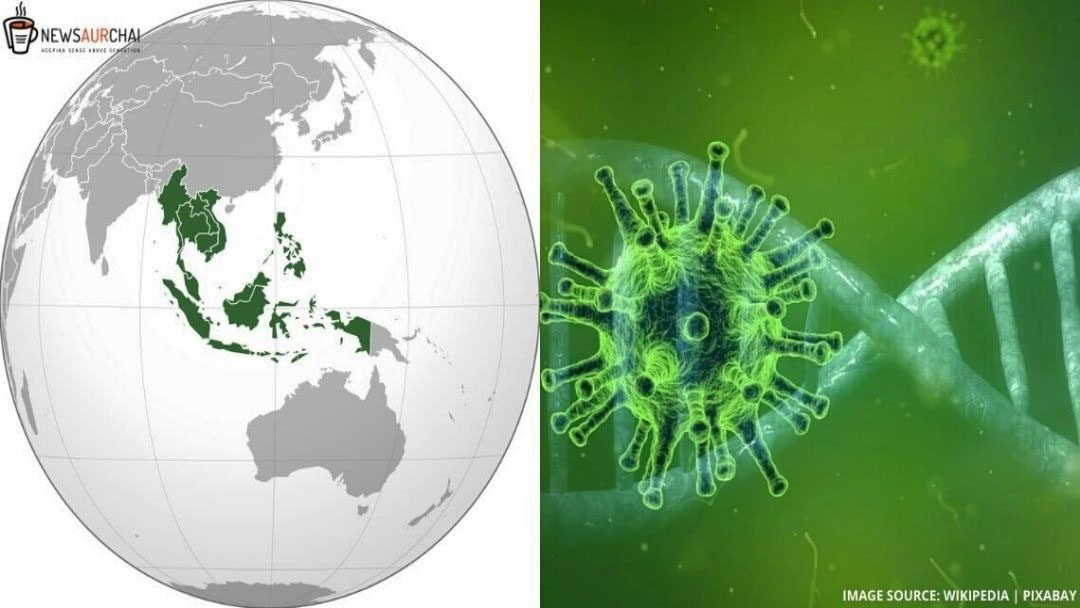
The World Health Organisation (WHO) has made a critical call for Southeast Asian countries to step up “aggressive measures” to fight against coronavirus after the number of confirmed cases and deaths rose sharply in the region.
Coronavirus in Southeast Asia:
Nearly all the countries in the Southeast Asian region have confirmed the contagious COVID-19 cases except Laos and Myanmar, which is alleged to be untrue.
Malaysia holds the highest number of infections with 1,306 cases as of March 23. Majority of the infected stated to have visited a religious event attended by over 16,000 people in the capital of Kuala Lumpur.
Poonam Khetrapal Singh, local director of the WHO Southeast Asia region, said on March 17 that greater clusters of virus transmission are being confirmed. He said that a more aggressive measure need to be taken to contain the virus.
Furthermore, he stated that people were encouraged to practice hand hygiene and social distancing, as well as self-isolate as it would help to reduce the overburning on the health system and the chance of transmission.
Due to the rise in infected cases, the government of Malaysia on March 16 enacted restrictive measures to contain the virus. The restriction is expected to stay in place till the end of March.
The Philippines has also implemented strict measures and have locked down Luzon, the country’s most populous island where the capital Manila is located. By doing so, the nation has placed almost 50 million people under “enhanced community quarantine”.
It is reported the government of the Philippines have placed the country under a “state of calamity” for six months to open an emergency fund.
Apart from these two countries Sri Lanka and Singapore, have imposed strict measure to contain coronavirus. Last month Singapore had raised its virus-response level to Orange, the second-highest grade and the same level as during the SARS epidemic.
Many nations outside and inside the WHO’s definition of Southeast Asia countries have had a sluggish reaction to the outbreak. However, last week saw a sudden surge of restrictive action/measures in this region as the cases rose sharply.
Some nations and territories that had seen success in controlling the virus or slowing its transmission, including South Korea, Hong Kong and Taiwan, have seen new spikes, amid fears, people returning from abroad are importing the virus.
China nevertheless has the highest number of confirmed cases, with more than 81,000, but its new infections are almost exclusively from human beings arriving from abroad and are very low.
South Korea has additionally been praised for its attempts to control the virus, and have taken the sixth position with Germany, Iran and France ahead of it.
However, reports also showed that small clusters are breaking out throughout the country, adding to the number of active cases which is currently more than 8,000 as on March 23.
Indonesia also saw the highest number of cases reported; as per Worldomeater, the nation has reported a total of 514 cases with 48 deaths as on March 23.
India and Pakistan saw a sudden spike in cases leading to an increase in the total number of infected to 415 and 799 cases respectively.
With this kind of a major outbreak, most countries have adopted measures to combat this virus. China, the epicentre of the coronavirus, now claims to have successfully curbed the spread is a sign that there is still hope for the countries to fight. The new ray of hope of the antidote being ready for tests has also brought relief to the countries.
The biggest concern is whether Southeast Asia, where poverty and illiteracy are fundamental problems, will be able to easily combat the pandemic like the other developed countries like China did.
With a population like that of India combating such issues would be rather problematic; as it is crucial to educate people about coronavirus.






3 Comments